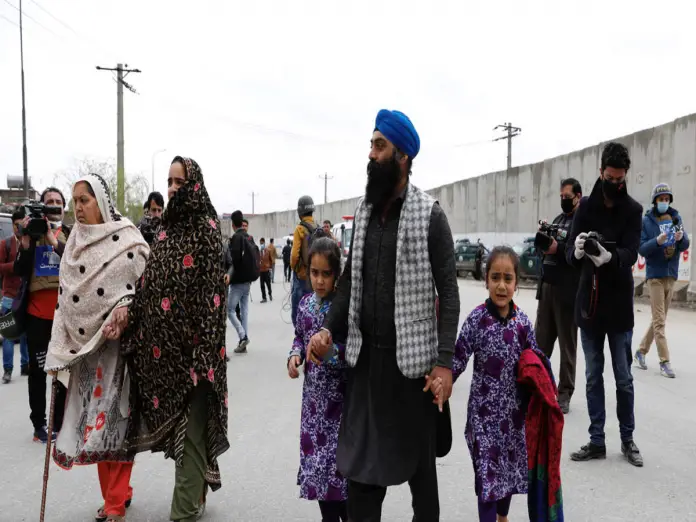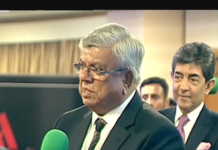On October 7, 2001, American and British troops launched a so-called global War on Terror spearheaded by Operation Enduring Freedom which targeted Al-Qaeda and the Taliban in Afghanistan.
The military campaign came in the aftermath of the 9/11 attack on American soil on September 11, 2001. The first airstrike occurred when the Taliban refused to hand over Osama bin Laden and other Al-Qaeda operatives, the latter, according to the United States, being the mastermind of the terrorist attacks.
Caught in the conflict was 12-year-old Charan Singh Khalsa, a Sikh Afghan who, when seeing troops entering Kabul, thought that something big was going to happen.
“My family was living in Kabul for decades. My kids are also born there. As a matter of fact, according to my elders, there were 260,000 Sikh families residing in Afghanistan. My family has seen the pre-Taliban times, the US occupation and now we witnessed the Taliban taking over again,” Khalsa told Minute Mirror.
Khalsa, now 32-year-old, came to Pakistan in 2018 after his brother was kidnapped from his shop and brutally killed.
With teary eyes, Khalsa narrated the ordeal. “We looked for him for almost two and a half months. After dozens of complaints and investigations, we got my brother’s bruised body. After that we decided that we have to leave this place as we have to save our children and make their future better,” Khalsa said.
After 20 years of non-stop bombing and drone attacks, the world has witnessed yet another desperate evacuation of forces from Kabul airport, this time of foreign troops. Hundreds and thousands of desperate people were seen trying to get aboard American planes in the hopes of survival.
Khalsa said, “Nobody wants to leave their birthplace. We sold our properties in pennies and just left as we only had two options; leave or die.”
On his decision to move to Pakistan, Khalsa said, “Pakistan has a very good reputation when it comes to the Sikh community, it was my family’s first choice.”
The Sikh community in Afghanistan, that existed in good numbers in the country, was left with just 700 members in 2002, according to an Al-Jazeera report which cited local sources.
The Taliban, however, were not the only threat to the Sikh community. In 2018, the Islamic State massacred 19 Sikhs in Jalalabad. In another bombing at the Har Rai Sahib Gurdwara in 2020, 25 members of the community died.
During the evacuation last month, three ‘saroops’ – physical copies of Sikh holy book Guru Granth Sahib – were transported to India.
Khalsa explained, “A place where there is no saroop present physically cannot be called a Gurdwara. We call such a place a property of Gurdwara.”
Expressing gratitude to Pakistanis, he added, “Here, especially in Lahore, when we go to Gurdwaras, we feel like this is our home. We are thankful to the people of Pakistan as they accept us with so much love and gratitude.”
Since the Taliban took over in August, the border is still closed for all except those who have valid paperwork or hold the nationality of Afghanistan.
Sardar Dharam Singh, who owns a Dawa Khana in Ichra Bazaar, Lahore, said, “As a minority, we enjoy more rights in Pakistan than anywhere else. Any Sikh in the world who does not get permission to stay or work can come to Pakistan easily as the government and people are really supportive.”
In a desperate move, many Afghans have tried to cross the Spin Boldak border crossing in Afghanistan’s south-eastern Kandahar province into the Pakistani town of Chaman.
According to official data, Pakistan currently is home to more than 1.4 million registered Afghan refugees. No data is available on unregistered Afghans, many of whom entered the country some 40 years ago following the Soviet invasion in 1979.
In 2002, the United Nations High Commissioner for Refugees (UNHCR) put the number of Afghan refugees in Pakistan at three million.
Khalsa has high hopes for his community. He said, “Pakistan’s authorities have been a blessing for the Sikh community and my family is the first case of a Sikh Afghan family applying for refugee status under the UNHCR. I still remember how the officials at the Pakistani embassy in Kabul worked for my visa exclusively. I will be always praying for them.”







